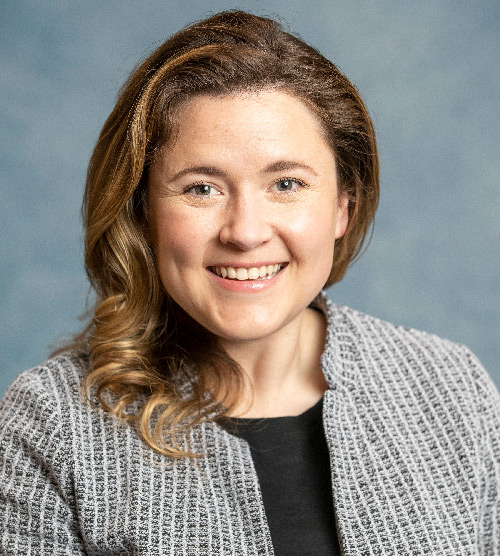Policy and Legislation
Count on us to help keep you informed about policies that affect our youngest Nebraskans.
Nebraska Legislation Affecting Early Childhood
Informed citizens and advocates play an important role in Nebraska’s political process. First Five Nebraska monitors and reports on legislation in the Unicameral related to the care and education of young children. This includes policy developments affecting child care, the early childhood workforce, economic development, maternal and child health, K-3 education and a wide range of related issues.
2021 Early Childhood Policy Highlights
The first session of the 107th Nebraska Legislature adjourned sine die May 27. During the scheduled 90-day session, senators debated and passed critical pieces of legislation, including a biennium budget, a Social Security tax cut and a bill to temporarily expand income eligibility limits for Child Care Subsidy. Senators will return for a special session in the fall for redistricting, the process of adjusting Congressional and Legislative district boundaries every 10 years based on new Census data.
Download the full Nebraska Legislative Highlights from the 2021 Legislative session.
| Number / Title | Description | Sponsor | Status |
| LB68 | Change provisions relating to reimbursement provided by the federal Child Care Subsidy Program |
Allows child care providers to bill for children utilizing the child care subsidy based on enrollment rather than attendance. | Day |
Remains in Health and Human Services Committee and will carry over into the 2022 Legislative session. |
| LB137 | Require reporting to the Nebraska Early Childhood Professional Record System (NECPRS) |
Requires employees of licensed child care professionals to report their educational degrees, professional credentials, relevant training and work history using the Nebraska Early Childhood Professional Record System. |
Vargas |
On General File with AM347. |
| LB342 | Appropriate funds to the State Department of Education |
Appropriations Committee Chair Senator John Stinner introduced LB342 to appropriate $5 million over two years to the Department of Education for the Nebraska Early Childhood Education Endowment Cash Fund, which funds Sixpence programs throughout the state. FFN testimony in support of LB342
|
Stinner |
Amended as AM393 into LB380, the mainline budget bill. Passed 47-0-0. Governor Pete Ricketts signed into law April 26.
|
| LB351 | Change provisions relating to quality scale ratings in Step Up to Quality |
Allows licensed child care providers to retain their quality rating in Nebraska’s QRIS, known as Step Up to Quality, if they acquire a new license type. |
Linehan |
Passed Final Reading with a vote of 41-0-0 and Governor Pete Ricketts signed it into law April 7. |
| LB380 | Mainline Budget Bill |
The main appropriations bill for the July 1, 2021 – June 30, 2023, biennium. |
Hilgers, at the request of the Governor |
It passed Final Reading on a 47-0-0 vote with an emergency clause and will become law July 1. |
| LB416 | Require implicit bias training under the Uniform Credentialing Act and provide for duties and funding relating to postpartum care and maternal health |
Require training to reduce or eliminate the factors and biases that cause disparities in health outcomes for women of color who are pregnant or postpartum. |
Cavanaugh |
Remains in Health and Human Services Committee and will carry over into the 2022 Legislative session. |
| LB485 | Change provisions relating to child care assistance |
Changes eligibility for the child care subsidy from up to 130% federal poverty level to 185% federal poverty level and eligibility for transitional child care from 185% federal poverty level to 200% federal poverty level. |
DeBoer |
Passed on Final Reading with AM1057, AM764, AM1187. The Governor Ricketts signed LB485 on May 24. |
| LB531 | Adopt the Nebraska Child Care Contribution Tax Credit Act |
Would adopt the Nebraska Child Care Contribution Tax Credit Act and enable taxpaying individuals and businesses to claim a nonrefundable income tax credit for qualifying contributions that promote quality child care programs in Nebraska. |
Briese |
Remains in the Revenue Committee and will carry over into the 2022 Legislative session. |
| LB625 | Impose a surtax on certain taxable income and use the tax proceeds for early childhood education |
Would impose a 4% income surtax on high-income individuals for the purpose of providing funds for early childhood education in Nebraska |
Vargas |
Indefinitely postponed. |
| LB677 | Change provisions relating to eligibility for transitional child care assistance |
Would adjust the family income for transitional child care assistance from 185% of Federal Poverty Level (FPL) to 200% FPL. |
Linehan |
Remains in the Health and Human Services Committee and will carry over to the 2022 Legislative session. |
Interim Session
Senators will conduct a number of studies during the interim. First Five Nebraska was fortunate to work with several senators to introduce legislative resolutions for five interim studies:
- LR142, introduced by Senator Machaela Cavanaugh, will determine whether legislation should be enacted to provide for additional supports and further address the issue of maternal depression in Nebraska FFN testimony on LR142
- LR162, introduced by Senator John Stinner, will examine the School Readiness Tax Credit Act.
- LR181, introduced by Senator Lynne Walz, will study home visitation for Nebraska families.
- LR190, introduced by Senator John McCollister, will look at work participation requirements in the federal Temporary Assistance for Needy Families (TANF) program in Nebraska.
- LR221, introduced by Senator Tony Vargas, will study maternal and infant mortality and morbidity FFN testimony on LR221
- LR178, introduced by Senator Anna Wishart, and LR179, introduced by Senator Machaela Cavanaugh, will solicit input from Nebraskans regarding funds from the federal American Rescue Plan Act of 2021 (ARPA) FFN testimony on LR178 and LR179

Elizabeth Lopez Everett
Deputy Director, Public Policy Manager
